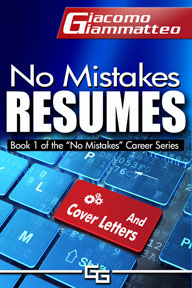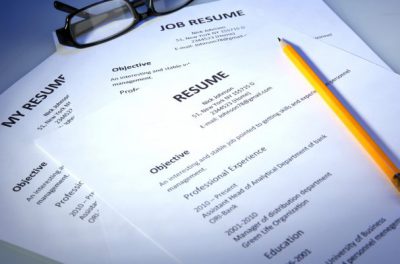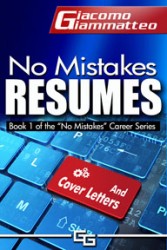Does Your Resume Make You Look Guilty?
If you’re using a functional resume, you might be starting out the job search process with two strikes against you. Most recruiters and gatekeepers despise functional resumes. The consensus is that if a person uses a functional resume they are hiding something.
Using a functional resume is like pulling your hood up and turning your head when you see a cop car. Or taking off running when someone yells stop. You might as well type in big red letters across the top:
I Am Hiding Something
In other words, don’t use a functional resume—no matter what advice you see to the contrary. Use logic. A functional resume creates more work for the one reviewing the resume, and trust me, the last thing gatekeepers or headhunters need is more work. A functional resume makes it almost impossible to put a person’s career and accomplishments into perspective. The accomplishments are lumped together and the gatekeeper has no idea which accomplishment goes with which position, and more importantly, many of them won’t take the time to figure it out.
Expert Advice
I have seen a lot of advice about functional resumes. Many experts are adamantly against using this format, while others recommend it, especially in certain circumstances. Most of those circumstances involve one of the following reasons:
* You have experience that doesn’t lend itself to a defined career path. (You might have had several jobs in different industries or industry segments.)
* You want to shift the focus of your career to a different field. (I’ve seen this often. Maybe you’ve been an engineer and you want to move into sales or product management, or even quality.)
* You have gaps in your work history.
* You are a fresh graduate from college and have little, if any, work history.
* Your work history consists primarily of volunteer work.
Analysis
Let’s look at them one at a time.
Want to shift focus to new field:
Depending on your experience, you might not have options. If you have 10 years in carpentry, you’re not getting a job as a nuclear physicist—no matter what kind of resume you use. But if you’re being reasonable about your expectations, you have a shot. That doesn’t mean you bundle your skills into a few paragraphs that toot your own horn and hope recruiters will fall all over themselves reaching for the phone to call you. The fact is, this is one of those situations where you’re facing an uphill battle, and the best thing you can do, is do it the right way. Show them what you’ve done in past jobs, and then, in a cover letter, address how that might help in this situation. Show them how your experience from a different field might help them solve their problems.
Example: Suppose you’re applying for a design position that requires experience with small mechanisms and you don’t have that in your work history; however, you have been doing watch & clock repair on the side for years. Use that experience to sell your skills/talents with small mechanisms. Get creative like this and you’ll have a good shot at getting the interview.
Experience doesn’t lend itself to defined career path:
If your experience doesn’t qualify you for the position, using a functional resume won’t help. When you find yourself in this situation, the only thing that helps is being able to show a history of success which, by its nature, indicates future success. I’m sure you’ve heard the saying “success breeds success.” Show them where you were successful and how—specifically—and then, in a cover letter, address how you might transfer what you learned in that successful venture/experience into success in your position.
Gaps in work history:
This is an easy one. If anyone ever tries telling you to hide your gaps—run! Run away from them as fast as you can.
Fresh graduate with no work history:
If you’re a college student, companies aren’t expecting a lot of years experience, and they’ll probably be thrilled with any work history. Don’t jumble it up by using a functional resume. Show what you’ve done, and where you did it, and address anything else in a cover letter, especially extracurricular activities that demonstrate applicable skills.
Volunteer work:
Volunteer work can be just as good experience as paid work. In fact it can show a lot more. Use It wisely and it might get you the interview faster than a full-time job. Do you know how difficult it is to raise money for non-profit causes? It shows dedication, perseverance, initiative, strategy. A career in business development might await you with the right company.
Or maybe you helped feed the homeless. That shows a natural connection to people and great communication skills. It might lead to an entry-level position in HR, or customer service. Think about what skills you used in your volunteer job and where those skills might be best used in a commercial setting. And don’t assume the interviewer will make that leap; take them by the hand and lead them to that conclusion.
One More Thing
I’ve also seen a few articles that suggest a person use a functional resume if their work history consists of the same type of jobs. This is another piece of advice that confuses me. Even if the last three positions were the same title and the same industry, certainly your accomplishments weren’t the same. I’m sure you faced different challenges and obstacles, and had different goals.
And remember, you’re going to quantify your accomplishments, in which case it would be almost impossible for the numbers to be the same. You surely didn’t increase sales the same percentage in all three jobs. Or cut cost by the same amounts. Accomplishments are almost always different; it’s only when you list responsibilities that a resume appears repetitive and dull. Check out the posts here and here on responsibilities to see why.
Bottom Line
I can’t think of a scenario where a functional resume would make more sense than a traditional one. I know that sometimes they look great—at first glance. But you have to put yourself in the gatekeeper’s shoes. She is suspicious. She is tired. She doesn’t want extra work to be able to make sense of your resume. Because of all those reasons, and more, there is a good chance that the beautiful functional resume you worked so hard on will end up in the trash.
For more detailed information, you might want to check out my resume/cover letter book, No Mistakes Resumes.
If you enjoyed this post, please share it.






















Connect
Connect with us on the following social media platforms.